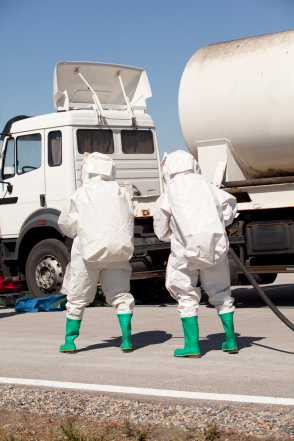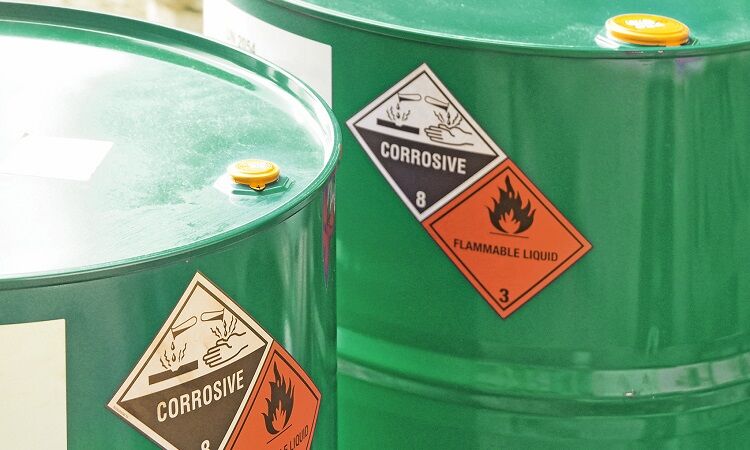Professional Liquid Waste Removal Melbourne: Maintaining Your Setting Tidy
Professional Liquid Waste Removal Melbourne: Maintaining Your Setting Tidy
Blog Article
Comprehending the Comprehensive Refine of Liquid Waste Disposal: Best Practices and Environmental Impact Considerations
The management of liquid garbage disposal is a complex issue that requires a complete understanding of numerous finest techniques and their linked environmental impacts. From the kinds of liquid waste generated to the approaches used for collection, treatment, and final disposal, each step plays a crucial role in guarding ecosystems and public wellness. As regulative criteria advance and technology developments, the conversation around these procedures ends up being progressively pertinent. What implications do these modifications hold for future sustainability efforts, and exactly how can stakeholders make certain that they are appropriately attended to?
Kinds of Liquid Waste
Recognizing the various sorts of fluid waste is vital for effective administration and disposal techniques. Fluid waste can be broadly classified right into several types, each calling for one-of-a-kind handling and treatment strategies.
Industrial fluid waste often includes dangerous materials, including hefty metals, solvents, and chemicals, produced throughout making processes. These wastes necessitate rigorous governing compliance to safeguard human health and wellness and the environment. Domestic liquid waste mostly refers to wastewater generated from homes, consisting of sewer and greywater, which, although much less toxic, can still position considerable threats if incorrectly managed.
Agricultural liquid waste, including overflow from farms, commonly includes fertilizers and pesticides that can cause ecological degradation if not treated sufficiently. Clinical fluid waste, created from medical care centers, includes polluted fluids such as bodily fluids and chemicals, needing specialized disposal methods to avoid infection and environmental contamination.
Last but not least, oil and grease waste, usually generated by restaurants and automobile markets, can cause severe obstructions in sewage system systems otherwise taken care of effectively. Recognizing these categories helps with targeted techniques for treatment, conformity with regulations, and effective disposal methods, inevitably advertising ecological sustainability and public wellness security.

Collection Approaches
Efficient collection methods are essential for the proper monitoring of liquid waste, ensuring that it is collected securely and effectively before therapy or disposal. Various techniques are utilized depending on the kind of liquid waste created, the quantity, and the specific features of the waste.
One common technique is using dedicated collection containers or sumps, which are designed to catch fluid waste at the resource. These systems typically include pumps that help with the transfer of waste to larger storage space containers or treatment centers. In addition, mobile collection systems furnished with vacuum cleaner innovation are utilized in circumstances where waste is generated intermittently or in hard-to-reach areas.
For industrial settings, closed-loop systems can efficiently minimize spills and leaks, permitting the healing and reuse of liquid waste. It is likewise necessary to train workers on appropriate collection methods to reduce dangers related to dangerous materials.
Additionally, carrying out normal maintenance timetables for collection tools ensures optimal performance and safety and security. The integration of sophisticated surveillance systems can boost collection efficiency by giving real-time information on waste levels and potential hazards. Generally, reliable collection approaches are fundamental to lasting fluid waste monitoring methods.
Treatment Procedures
Treatment processes play a crucial function in the administration of liquid waste, transforming potentially dangerous materials right into risk-free effluents or recyclable resources - liquid waste disposal. These processes can be broadly classified into physical, chemical, and organic approaches, each customized to attend to particular impurities existing in the waste stream
Physical therapy methods, such as sedimentation and filtration, job by eliminating suspended solids and particle issue. These methods are often the initial step in the treatment chain, effectively reducing the lots on succeeding procedures. Chemical therapies involve using reagents to counteract hazardous substances, speed up hefty metals, or oxidize organic pollutants, therefore boosting the security of the effluent.
Biological treatment procedures, including activated sludge systems and anaerobic digestion, maximize the natural capabilities of bacteria to weaken natural matter. These methods are specifically effective for wastewater consisting of biodegradable toxins. Advanced treatment modern technologies, such as membrane filtering and progressed oxidation procedures, are significantly employed to accomplish greater degrees of filtration.
Incorporating a combination of these therapy methods not just ensures compliance with regulative criteria however additionally promotes environmental Learn More Here sustainability by recuperating important sources from liquid waste.
Disposal Options
Exactly how can companies ensure the liable and secure disposal of fluid waste? Effective disposal choices are crucial for protecting public health and wellness and the setting. The primary methods include land treatment, disposal, and incineration complied with by discharge right into metropolitan wastewater systems.
Land disposal involves the careful containment of fluid waste in designated landfills, making sure that it does not seep into bordering look at here now soil or water. Incineration, on the other hand, subjects fluid waste to heats, transforming it right into ash and gases, which call for correct purification to reduce exhausts. This approach is appropriate for harmful wastes that can not be dealt with via conventional means.
In cases where fluid waste can be treated, companies might choose chemical or biological treatment procedures to reduce the effects of unsafe parts before discharging the treated effluent right into local systems. This path typically aligns with regulatory needs, making certain that the effluent satisfies safety standards.
Inevitably, organizations must carry out extensive assessments of each disposal option to identify its viability, considering variables such as waste structure, regulatory conformity, and potential threats to health and wellness and the environment. By choosing ideal disposal approaches, services can add to an accountable waste management technique.
Environmental Influence
The environmental influence of fluid waste disposal is a critical factor to consider for organizations looking for to lessen their environmental impact. Additionally, the discharge of neglected or inadequately treated waste into surface waters can result in eutrophication, leading to oxygen deficiency and the subsequent death of fish and other organisms.

To reduce these impacts, organizations have to adopt ideal techniques such as applying extensive waste therapy procedures, advertising recycling and reuse, and adhering to regulatory standards. By taking a proactive method to liquid waste management, entities can significantly lower their environmental footprint while sustaining sustainable development objectives. Inevitably, an extensive understanding of the ecological influences related to fluid waste disposal is crucial for informed decision-making and liable you can look here stewardship of natural deposits.
Verdict
Efficient management of liquid waste is critical for guarding environmental honesty and public health. By taking on best techniques in disposal, collection, and treatment, along with adherence to governing requirements, the possibility for damaging contamination of communities can be considerably decreased. Continual developments in modern technology and processes add to lasting waste management initiatives. Inevitably, a detailed understanding of liquid garbage disposal not only alleviates environmental effects but additionally fosters a dedication to liable resource monitoring and environmental stewardship.
The monitoring of fluid waste disposal is a multifaceted concern that needs a thorough understanding of different finest methods and their connected ecological impacts. From the types of liquid waste generated to the approaches utilized for collection, treatment, and final disposal, each step plays an essential role in guarding communities and public health and wellness.The environmental effect of liquid waste disposal is a crucial consideration for organizations seeking to decrease their ecological impact. Eventually, a detailed understanding of the ecological effects associated with liquid waste disposal is vital for notified decision-making and responsible stewardship of natural resources.
Inevitably, a detailed understanding of fluid waste disposal not only reduces ecological influences yet likewise promotes a commitment to liable resource administration and environmental stewardship.
Report this page